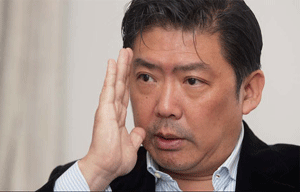China unveils steps to help small firms
Updated: 2011-10-13 08:00
(Agencies)
|
|||||||||
BEIJING - China on Wednesday unveiled a set of measures to expand financing supports for cash-starved small businesses, a step signalling some relaxation of credit controls but not amounting to a fundamental shift in monetary policy.
The steps, including allowing small companies to issue more bills and bonds while paying less taxes, were announced on the government's web site (www.gov.cn) after a cabinet meeting presided over by Premier Wen Jiabao.
Small banks will continue to implement "relatively" low reserve requirement ratios (RRR) compared with big banks, the cabinet said, falling short of announcing a cut in RRR as expected by some investors.
China's RRR for big banks now stands at 21.5 percent, and the ratio for smaller banks, which tend to be more focussed on financing smaller firms, is 19.5 percent or even lower.
"Currently, some small- and micro- sized firms are facing operating difficulties and the problem is also that they are facing a heavy tax burden and finding it hard to get finance, all of which we need to give high attention to," said a cabinet statement.
The government will raise the threshold for levying value-added and business taxes for such firms, easing their burdens.
Despite the move, analysts believe the government will refrain from easing monetary policy in the near term for fear of reigniting inflation pressures.
Guo Tianyong, an economist at Central University of Finance and Economics in Beijing, said the move should be seen as a "targeted" easing of credit curbs, rather than an across-the-board policy easing, given inflation remains elevated.
Small firms hold the key to a stable job market in China as they account for 75 percent of employment.
"It is far-fetched to read these measures as a signal of Beijing relaxing its macro policies," said Qiao Yongyuan, an analyst at CEBM in Shanghai.
"It is a set of detailed guidelines concerning more about providing support for smaller firms and regulating private financing," he added.
China's annual inflation pulled back to 6.2 percent in August from July's three-year high, cementing expectations that Beijing will hold off further policy tightening amid uncertainties hanging over the global economic recovery.
Since last October, the central bank has raised interest rates five times and increased bank reserve requirement ratios - the percentage of cash deposits they must set aside in their vaults - nine times.










